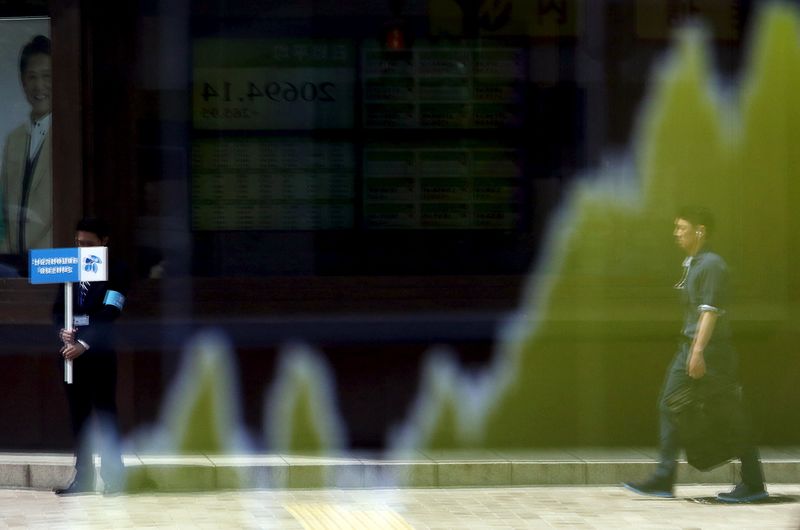Investing.com-- Most Asian stocks advanced on Tuesday, taking a positive lead-in from Wall Street after gains in tech spurred record highs in U.S. indexes, while the Bank of Japan maintained its ultra-dovish stance and forecast cooling inflation.
Chinese markets somewhat paused recent losses, while Hong Kong’s Hang Seng index rebounded from 15-month lows on media reports that the government was planning to mobilize more measures to support local stock markets.
But mainland Chinese indexes remained at multi-year lows, especially as sentiment towards the country was battered by signs of persistent economic weakness.
Broader Asian markets rose on a positive lead-in from Wall Street, as the technology sector remained supported by continued hype over artificial intelligence. The S&P 500 and Dow Jones Industrial Average both hit record highs on Monday.
A slew of major U.S. quarterly earnings were also on tap this week, including reports from Netflix Inc (NASDAQ:NFLX), Tesla Inc (NASDAQ:TSLA), and Intel Corporation (NASDAQ:INTC).
Japanese stocks retreat from 34-year highs as BOJ remains dovish
Japanese shares trimmed their intra-day gains on Tuesday, with the Nikkei 225 and TOPIX index both trading sideways in afternoon trade. The two had surged to new 34-year highs earlier in the session.
Japanese markets were hit with some profit-taking, having risen sharply in the lead-up to Tuesday's BOJ meeting.
The BOJ kept its ultra-dovish policy unchanged, citing increased uncertainty over the Japanese economy. But the bank also trimmed its consumer price index inflation forecast for fiscal 2024- a scenario that bodes well for the Japanese economy.
Softer inflation gives the BOJ little impetus to begin tightening policy, with the central bank also offering scant cues on any such plans on Tuesday. An ultra-dovish BOJ was a key point of support for Japanese stocks, as monetary conditions remained loose despite rising rates in the rest of the world.
Broader Asian markets rose on gains in technology stocks. Australia’s ASX 200 jumped 0.7% to a two-week high.
South Korea’s KOSPI rose 0.6%, even as data showed a pick-up in producer price inflation in December.
India’s Nifty 50 index opened about 0.7% higher as heavyweight tech stocks in the country tracked strength in their global peers.
Sentiment towards India also improved amid easing fears of communal violence in the country, after the inauguration of a controversial temple in North India.
Chinese stocks stem losses on report of more govt support
While Hong Kong stocks rebounded, China’s benchmark indexes kept to a tight trading range and remained near multi-year lows. The Shanghai Shenzhen CSI 300 index fell 0.3% to a five-year low, while the Shanghai Composite steadied at a near four-year low.
Bloomberg reported that the Chinese government was considering setting up a stock market stabilization fund of up to 2 trillion yuan (278 billion) to buy onshore shares and stem a deep sell-off in Chinese stock markets.
While the report helped curb bigger losses in Chinese markets, it also underscored the need for the government to intervene amid a worsening rout in the country’s stock market.
Chinese stocks were the worst performers in Asia in 2023, with this underperformance spilling over into 2024 as the world’s second-largest economy showed little signs of improvement.
InvestingPro subscribers are the first to know the news that's moving markets. For an extra 10% discount, use Coupon: Canada2024. Don’t miss the New Year’s sale, for up to 60% off. Only until Jan 31
